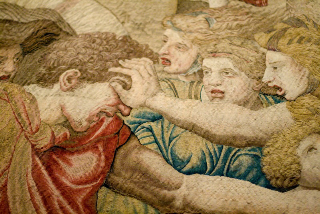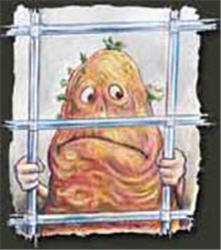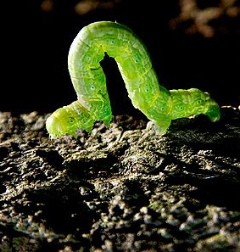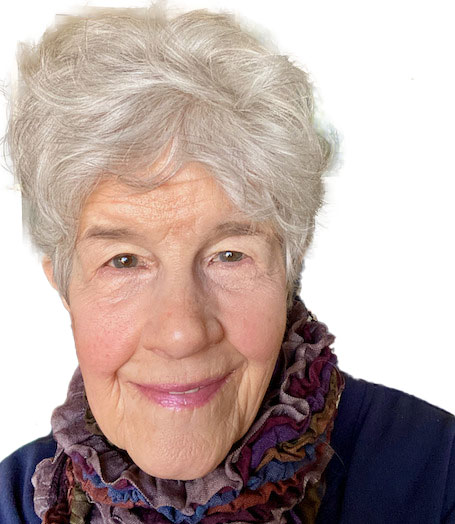“I’ve been cheated in my life so I deserve to eat what I want!”
June spoke these words through her tears. Her doctor had told her that her blood levels were very high.
“I don’t want to alarm you ,” the doctor had said, “but you need to come back in three months for another fasting blood test. We don’t want to diagnose diabetes yet. We need several readings. But with the history of diabetes in your family, with your being overweight by about 50 pounds, and all your chronic pain and bone issues, diabetes could seriously affect your already compromised lifestyle…and maybe your life.”
June’s doctor explained the reasons why diabetes as a lifestyle could be particularly dangerous. For an older adult it could lead to blindness, it contribute to heart disease, and can lead to diabetic neuropathy—losing the sensation of touch in feet, for example. If June developed a sore, or picked up a splinter the wound could fester and she might not be aware of it until the infection was serious and her foot might even have to be amputated.
“You already have a number of medical problems,” June’s doctor said, “Diabetes affects so many parts of the body. We would have a difficult time treating you, and diabetes will make you sicker.”
I asked June what she would have to do to not get diabetes. The best thing for her, she said, would be to lose weight. But—exercise was difficult for her because of chronic pain issues. Weight loss had been an issue that she has dealt with for a long time with various programs, all of which work at first and then don’t.

“If you remember, Weight Watchers doesn’t work for me, ” she said.
“Umm.” I replied. “If you remember, Weight Watchers actually worked fine, but you sabotaged the program. It was you that didn’t work!” June chuckled and sighed. “Yeah, you are right.”
I have worked with June for a long time for fibromyalgia. (She is “Sally” in my book The 8 Master Keys to Healing What Hurts). Over and over again she has had the revelation during tapping sessions that she has an active inner band of saboteurs who are determined to make up for what she didn’t get as a child.
June repeatedly realizes that she has held on to her chronic pain in order to have an excuse to say no to what she doesn’t want to do, and to get attention. Food has been her primary caregiver.
She has been on many diets, and worked through many emotional issues to “get” all over again that a part of her inside will NOT be told what to do, and WILL see that she does what she wants and eat what she wants when she wants it, because she had no power and not enough love as a child.
June has actually come a long way. We have worked on many many issues in her life that have in the past triggered her saboteurs to take control to “make things right” for “little Junie” and adult June.
But at some level she has not been willing to change the deepest pattern in her that keeps her overweight and in pain. Now, however, with the threat of diabetes, it is clear that her very life is in danger. Will she be able to save her life? She was scared.
At the same time, she still didn’t think it would be possible to take the steps, like exercise and weight loss that would ward off diabetes.
I decided to try what I call Kaizen Tapping with June. Kaizen is an ancient Japanese strategy for making improvements that is based on how the brain processes fear. The strategy is very simple: take (ridiculously) small steps toward what you want.
There is a part of the mid-brain called the amygdala whose job is to control our response to danger with the fight, flight or freeze response.
It is programmed to go off whenever we don’t feel safe.

For a very sensitive person almost any change is difficult. We can set off the amygdala when we even consider, much less try to do, a challenge like taking a new job or meeting the expectations of others. The theory of Kaizen is to make very small changes regularly, over time, changes that are so small that they actually fly under the radar of the amygdala. If the amygdala is not alerted, it doesn’t set about hauling in all our highly experienced saboteurs to make sure we “don’t go there.”
When we want to change, most of us set big, high, inspiring goals for ourselves to work diligently toward. Some people get excited and go for it. But for lots of us, the more important the goal is, the more it stimulates our fear that we might not succeed.
And then the amygdala is off and running to stop us in our tracks. This is the feeling of having your foot on the accelerator and the brake at the same time. We freeze. We lose our ability to be creative and powerful just when we need it most.
Robert Maurer, a psychologist who writes about Kaizen, says this:
“The little steps of kaizen are a kind of stealth solution to this quality of the brain. Instead of spending years in counseling to understand why you’re afraid of looking great or achieving your professional goals, you can use kaizen to go around or under these fears. Small, easily achievable goals—such as picking up and storing one paperclip on a chronically messy desk—let you tiptoe right past the amygdala, keeping it asleep and unable to set off alarm bells.”
(from One Small Step Can Change Your Life)
We tend to think about change as being anything but slow and easy. Even in EFT, the stated goal is to “deeply and completely accept myself.” Now, really, how likely is that phrase to raise alarm flags and “yes buts” and tail enders in you?
The idea here is to have a deep and inspiring purpose or mission, and hold it in your heart, quietly. Now, keep turning yourself gently towards it, over and over, in small ways, every day. All of those present moments are creating the beauty and promise of the future.
For June it was difficult at first to actually find the small step to take. She was so used to deciding to lose 50 pounds and determining to cut out all sweets and carbs—decisions that were sure to set off her saboteurs! She decided that her main goal was optimum health, and each day she would take a small step toward that. But, this was way too global.
Since the issue here could be narrowed down to the threat of diabetes and its effect on her health, and since her doctor had said that the best way to prevent diabetes was exercise and weight loss, I asked her to choose one of these two directions.
She chose weight loss. Was the small step to go on a diet? No. Way too many alarms associated with diets. She already had a lot of experience with that.
So I asked June how—very specifically—she gained weight. What was it that she loved to eat? At first she said her sweet of choice was ice cream, but it turned out that she really only ate that once a week or so. Next she admitted that she loved bread and bagels and potatoes. So she said , “I will cut that out as my small step.”

But here June burst into tears. She said, “I feel like I’ve been cheated so much in my life that I deserve to eat what I want!” This was a perfect example of June’s amygdala leaping to protect her. Unconsciously, the sweetness of the carbs in bread and potatoes was giving her what she never got enough of—love. Unconsciously, cutting carbs out meant losing love.
We decided that a good “ridiculously small step” would be to cut back on one bite of the bread or potatoes in each meal. She could do this by returning the first bite from her plate to the pot when it was served, or by throwing out the last bite of the serving that she had or the bagel she was eating. She would allow herself to eat bread or potatoes, but she eat just a bite less. That seemed very do-able to June.
Now we had a plan, and we could support it with Kaizen Tapping. Here are some of the set-up and reminder phrases that we used. Tap along! Use your own issues (the one paperclip trick for a messy desk/house, standing on the treadmill for one minute a day for resistance to exercise).
Even though my doctor said I am at risk for diabetes, and that is very scary to me, I accept that this is the situation that I am facing…
what the doctor said
this fear
so scared
I could get sicker
I could be in worse pain
I could die
I think I want to live though
Hmmm…I do have conflicts about living
What if my husband dies first?
I don’t want to live without him
These tears
This conflict
Hurts so much
I know that part of me really wants to live
Even though I should exercise to lose weight, but it hurts to exercise… still, I accept myself enough know that I want to bring healing to this. I wonder what else I could do?…
I should exercise
It hurts to exercise
I hate exercising
If I exercise I might lose weight
I have conflicts about losing weight
If I lose weight I might lose the pain
The pain has been useful to me
Where would I be without the pain as an excuse?
I get lots of attention for being in pain
What if there was another way to think about this?
I am open to considering other ways, I really don’t like being in pain
Even though I have tried diets for years, and they don’t work, I accept myself enough to admit that I have actively sabotaged them to get what I want… and now I am open to considering new approaches….
Discouraged about diets
They don’t work for me
Well, I don’t allow them to work
I deserve to eat what I want
No one can tell me what to do
I do want to live though
How can I turn my attention to living?
What if there was another way of doing this?
What is the smallest thing I could do to turn towards healing?
What if…?
What could be possible…?
I wonder…

Even though I’ve been cheated so much in my life that I deserve to eat what I want, I love and accept myself enough to find other ways to honor the parts of me that know I deserve better…
And even though I am so sensitive to change, I accept myself enough to feel better…I want to change how I am living in a way that feels good to me…
What if I took one tiny step toward change?
What if I honor my fear…it is just trying to keep me safe?
I could do something small
I could recycle one bite of my bagel for a month
I could recycle one bite of potatoes for a month
It seems so silly!
I should just be tougher and have a stronger will!
What is wrong with me?
But this small way feels good. I feel quiet inside.
I feel like I am taking steps on my own behalf
That doesn’t seem too scary
I feel more peaceful inside
I might even enjoy doing this! Sort of sounds like fun!
Especially because I want to be healthy, I am choosing life, one bite at a time…
Instead of raging at myself for falling off yet another diet, I can have hope
I can acknowledge my fear and slowly build new habits in my brain
I can let go of one bite at a time—that could be easy!
Imagining myself feeling so good pushing that bite off my plate
Imagining myself actually enjoying recycling that last bite of bread
Hmmm…I wonder when it will be TWO bites?
Maybe I will surprise myself!
I like feeling like I am in control
I love this way of transforming my fear…
Kaizen tapping can be a reassuring way to solve small problems, one tiny bite at a time, even though you may be faced with an overwhelming crisis.
Try it out! I will share more about Kaizen Tapping soon, and I will let you know how June is doing!
With my love and blessings –
Rue



Wow! I’m so happy to have read this article! This is exactly what I was looking for. I have a cousin, who is struggling with obesity for some time now, by the point her doctor is telling her that unless she’s loosing some weight fast, she will die! And when she was telling me this, with her 4 year old daughter next to her by the way, she was laughing! Having read Lise Bourbeau ‘s books, I’m suspecting what some of the issues are for the weight, but I’m more and more painfully aware that most people will not admit or recognize these issues in their life. I think this information would be of great benefit for her, so I would like to translate this to romanian, and, with your permission, I would also like to post it on my blog. I think your Kaizen approach is brilliant, and I’ll definitely start using it myself 🙂 Thank you!
Thank you Alina! Yes, of course you may translate this article into Romanian and post it on your blog.
Just please include my name and website.
Blessings to you –
Rue